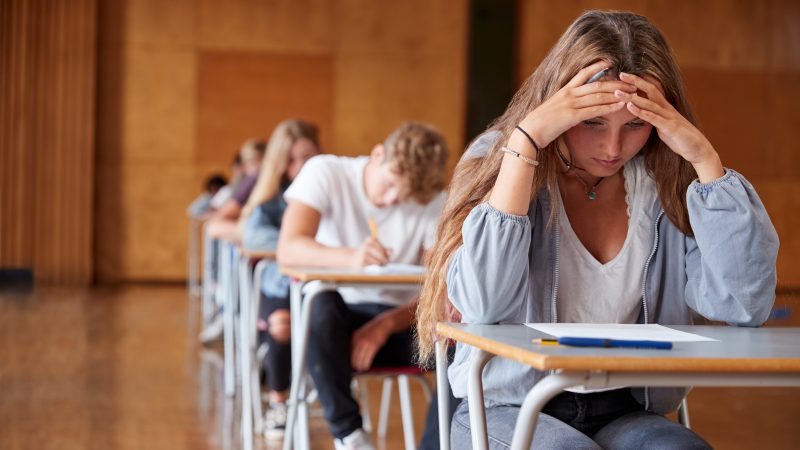
It’s now 22 years since I took my A-Level exams, and yet I still often have nightmares where I miss the exam by going to the wrong room, or have revised for the wrong subject. During lockdown, I bizarrely started dreaming I had to sit my exams having had no teaching all year. The fact that these dreams persist more than two decades after I took my A-Levels perhaps suggest that the stress I was under has lodged itself in my psyche, never to leave.
I was very lucky when I took my examinations it was 1998. Tony Blair’s government had not long since came to power. Like many others in my class, I was the first in my family to apply for university. The economy was on the up, there was plenty for young people to do socially. There was optimism in the air. I cannot imagine what it is like for those turning 18 this year. I struggle to find much cause for optimism about their circumstances or the future that awaits them.
Rightly, the plight of those already at university is getting a lot of attention. Having already endured the A-Levels results fiasco in August this year, freshers have found themselves in something resembling a dystopian world where they are trapped in a house with strangers, in a strange place, unable to meet new people other than their housemates, and have no opportunities for face-to-face learning.
But the circumstances of our Year 13s need attention, too. They are being completely failed by the government. Having already missed half a year’s teaching of a two-year course, they are back at school with no idea as to whether their course will conclude in an exam or whether an algorithm will emerge to determine their fate. Teachers have no idea what, if anything, will be taken off exams if they do take place, on account of it being impossible to deliver the whole syllabus.
Can you imagine teaching with no idea whether you are teaching the right things, and studying with no idea by what method you will be assessed? 17- and 18-year-olds are now left trying to decide which courses to apply for at university with no idea what their grades might look like.
The government has had more than enough time now to provide clarity about what will happen next. Their silence is inexcusable. Before the Covid crisis, one in six (16.9%) 17- to 19-year-olds were found to have a mental disorder. It seems likely that the stresses of the last seven months will have caused that number to rise and that the situation with school will be adding to that.
Why has this situation been approached with so little care and compassion for those affected? Why has the government not learnt from the painful experience of last year’s results debacle? Why, once again, are the voices of teachers and students being ignored?
Gavin Williamson is fast gathering a reputation for incompetence to envy that of Chris Grayling. Our young people deserve and need so much better than this, and the long-term impact of a poor experience in post-16 education cannot be underestimated. Young people and schools need clarity and fast.




More from LabourList
Nudification apps facilitate digital sexual assault – and they should be banned
Diane Abbott suspended from Labour after defending racism comments
Labour campaign groups join forces to call for reinstatement of MPs